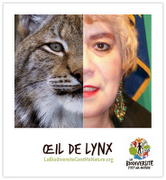dimanche 30 mai 2010
*BP to 'move on' after failed 'top kill’ attempts...*
***BP will "move on to the next option" after several attempts to stuff solid material and pump mud into a breached Gulf of Mexico oil well failed to stop the flow, according to a BP spokesman.
Meanwhile, rescuers plan to release a group of birds Sunday that workers washed and rehabilitated after finding them covered with crude, officials said. A northern gannet and brown pelicans rescued in Louisiana will be transported to a refuge at the mouth of Tampa Bay, Florida, and released Sunday, a statement from the oil spill cleanup command said.
But officials say more wildlife are at risk as up to 19,000 barrels (798,000 gallons) of oil daily continue gushing from an underwater well that engineers have been unable to cap for more than a month.
Top BP executives said Saturday that engineers and scientists had decided to try a new technique of stopping the flow after three attempts to pump mud and 16 tries to stuff solid material into the well failed.
That option: placing a custom-built cap to fit over the "lower marine riser package," BP chief operation officer Doug Suttles said. BP crews were already at work Saturday to ready the materials for that method, he said.
"We have not been able to stop the flow," a somber Suttles told reporters. "Repeated pumping, we don't believe, will achieve success, so we will move on to the next option. »
Suttles and other officials said that the "top kill" attempt to stop the flow did so -- but only as long as they were pumping. When the pumping stopped, the oil resumed its escape.
Suttles said the lower marine riser package cap, which will be ready in four to seven days, "should be able to capture most of the oil" that has fed what is now the largest oil spill in U.S. history. But, he cautioned, the new cap will not provide a "tight mechanical seal. »
"We're confident the job will work, but obviously we cannot guarantee success at this time," he said.
Coast Guard Rear Adm. Mary Landry said that BP would resume using undersea dispersants for the new attempt to trap the oil.
Landry said officials were disappointed by Saturday's announcement, but noted that the immediate efforts to stop the flow were never intended to be permanent.
"The real solution, the end state, is a relief well," she said.
BP currently is working on two relief wells, but they are not expected to be ready until August, Suttles said.
Earlier, Suttles said that BP engineers would try to place a second blowout preventer -- the piece of equipment that failed when the Deepwater Horizon exploded on April 20 -- should the lower marine riser package fail. The failed blowout preventer is a 48-foot-tall, 450-ton apparatus that sits atop the well 5,000 feet underwater.
Suttles and Landry praised the clean-up efforts, however, in light of the failure of the "top kill" attempt to stop the flow.
"It's a tribute to everybody that we only have 107 miles of shoreline oiled and only 32 acres of marsh," Landry said.
Plaquemines Parish President Billy Nungesser told CNN Saturday night that BP needed to "step up to the plate tonight to save our wetlands" by using its might to create sand barriers to prevent the oil from moving into the marshes.
"BP needs to say it will pay to move those dredges and pump that sand berm," he said. "We are gonna die a slow death if we don't get that berm. We've got to have that barrier island. »
Sen. Mary Landrieu, a Democrat from Louisiana, echoed the call to bolster barrier islands in a statement Saturday night.
She said BP should immediately invest $1 billion to protect marshes, wetlands and estuaries -- giving half the money to short-term projects protecting the Louisiana coast and half to other Gulf Coast states "based on the immediate threat posed by oil spewing from the well. »
President Obama, who toured the area Friday, said federal officials were prepared to authorize moving forward with "a portion of" an idea proposed by local officials, who want the Army Corps of Engineers to build a "sand boom" offshore to keep the water from getting into the fragile marshlands.
But Nungesser said the marshes couldn't wait and that the effort needed to start immediately to save the Louisiana wetlands.
A team of oil spill experts were on standby in the United Arab Emirates, ready to help in the Gulf of Mexico cleanup efforts if called to do so, officials in the Middle Eastern country told CNN Sunday.
The United Arab Emirates originally made the offer two weeks ago. "Basically, it's an offer made on behalf of the government in recognition of this environmental issue. It is an offer of support," said Craig Buckingham of the Abu Dhabi National Oil Company.
Government scientists on Thursday said as many as 19,000 barrels (798,000 gallons) of oil were spewing into the ocean every day, making this disaster perhaps twice the size of the Exxon Valdez incident.
Previously, BP officials and government scientists had said 5,000 barrels (210,000 gallons) of crude were flowing out daily.
In a statement after BP announced that the top kill had failed Saturday, Obama said officials remained determined to "pursue all responsible means of stopping the leak" until relief wells are completed.
"As I said yesterday, every day that this leak continues is an assault on the people of the Gulf Coast region, their livelihoods, and the natural bounty that belongs to all of us," he said.
CNN
Bien à vous,
Morgane BRAVO
Inscription à :
Publier les commentaires (Atom)















Aucun commentaire:
Enregistrer un commentaire